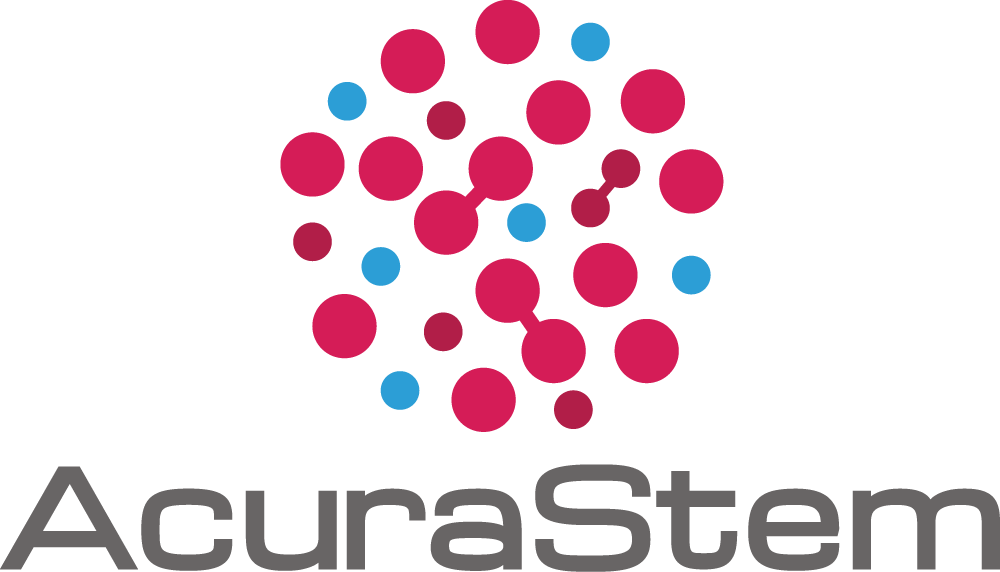MONROVIA, Calif., December 15, 2021 — AcuraStem (acurastem.com), a patient-based drug discovery platform company developing novel therapeutics for amyotrophic lateral sclerosis (ALS) and neurodegenerative diseases, announced the results of extensive preclinical studies on its lead program, AS-202, for ALS patients. The data were presented at the Motor Neuron Disease Association 32nd International Symposium on ALS/MND on December 9, by AcuraStem’s Head of Research, Wen-Hsuan Chang, Ph.D.
AS-202 is a PIKFYVE suppressing antisense oligonucleotide optimized for both safety and efficacy as a potential treatment for motor neuron degeneration resulting from TDP-43 pathology in ALS patients.
A major hallmark of ALS disease pathology is the mislocalization of the DNA/RNA binding protein TDP-43 from the nucleus of neurons, where it normally resides, to the cytoplasm, where it becomes associated with cytoplasmic aggregates in 97% of ALS cases.
The poster presentation, AS-202, a potent and safe PIKFYVE suppressing antisense oligonucleotide therapy for familial and sporadic ALS, showed that lowering levels of PIKFYVE significantly improved motor function and survival in an aggressive TDP-43 mouse model of ALS. These improvements were driven by a rescue of motor neuron degeneration and TDP-43 pathology in the treated mice. Importantly, the data demonstrates that AS-202 is a potent PIKFYVE suppressor with no significant off-target effects in human cells, and was well-tolerated in rodent models at high doses.
“These data make AS-202 a very promising drug candidate for the 97% of ALS patients that present with TDP-43 pathology," said Peter Sazani, Ph.D., Head of Translational Medicine at AcuraStem. "The current preclinical data show that AS-202 could translate into an exciting new clinical approach to treating ALS.”
The disease-modifying potential of PIKFYVE for ALS was discovered by AcuraStem’s co-founder, Justin Ichida, Ph.D., in a landmark study appearing in Nature Medicine in 2018 (Shi Y et al Nature Med 2018). AcuraStem’s iNeuroRx® technology platform, which combines patient-derived disease models and human genetic data at scale, has validated Dr. Ichida’s discovery in many ALS patient-derived models including both sporadic and multiple, genetically defined forms of ALS.
“Mislocalization of TDP-43 in motor neurons is a nearly universal finding in humans with ALS, and approaches to addressing this issue are extremely promising,” said Jeremy Shefner, M.D., Ph.D., of Barrow Neurological Institute. “Restoration of TDP-43 in the nucleus and reduction in cytoplasmic aggregates by PIKFYVE suppression is a strategy clearly worthy of future study.”
AcuraStem’s development of AS-202 is funded in part by the Alzheimer’s Drug Discovery Foundation, the Department of Defense (DOD) ALS research program under contract W81XWH2110355 and the National Institute Of Neurological Disorders And Stroke of the National Institutes of Health under Award Number R44NS124454. The contents are those of the author(s) and do not necessarily represent the official views of, nor an endorsement by, DOD or the U.S. Government.

About AcuraStem
AcuraStem is a patient-based drug discovery platform company developing novel drug programs for neurodegenerative diseases. AcuraStem’s iNeuroRx® technology platform combines patient-derived disease models with human genetic data. The company is led by experts in disease modeling, machine learning and drug development.
Contact:
Kissy Black
Director of Communications, AcuraStem
kblack@acurastem.com
615.310.1894
